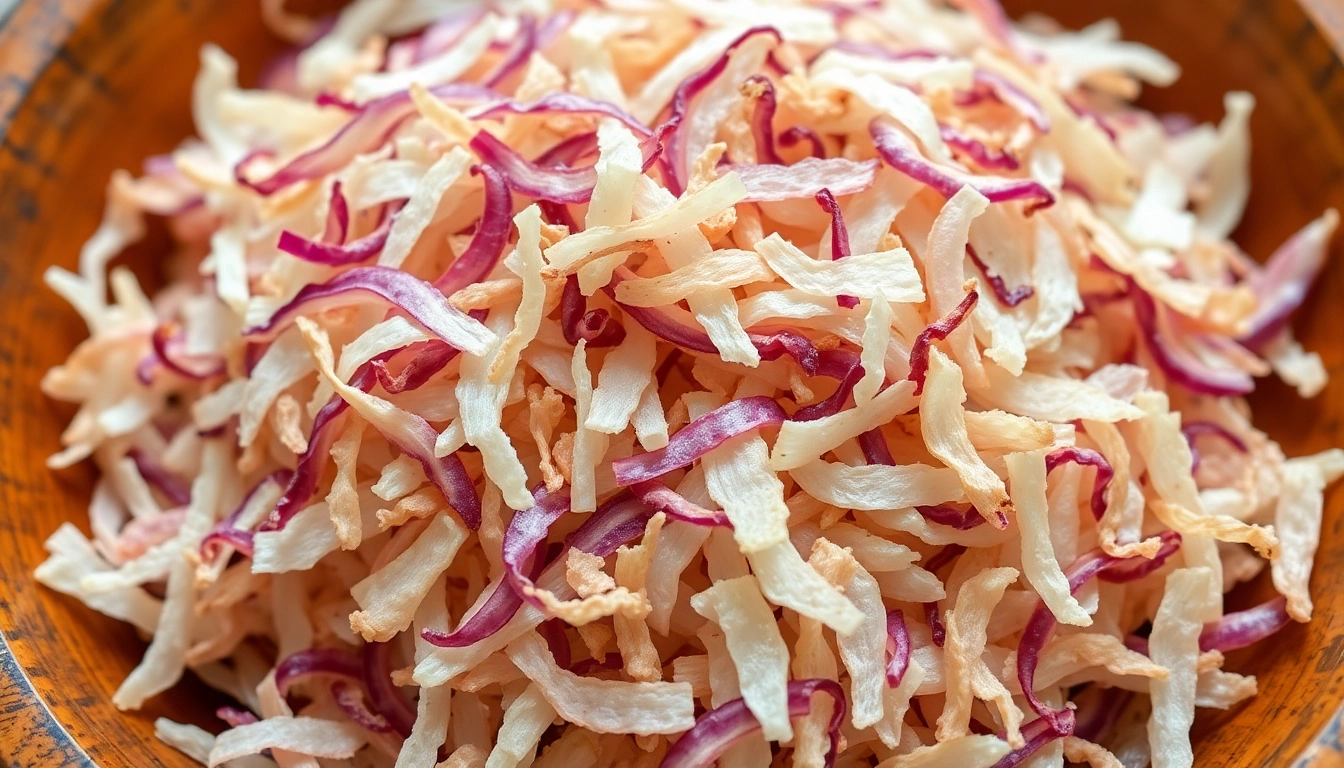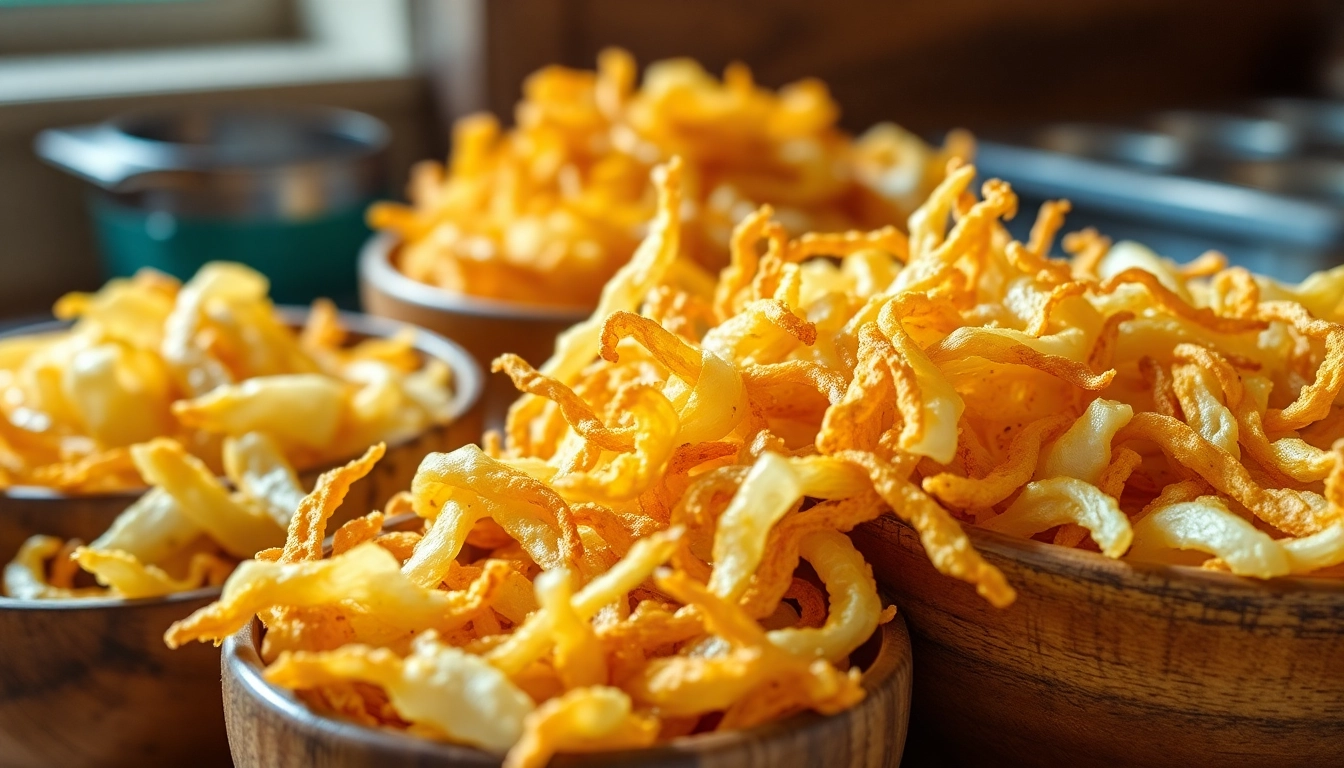Understanding Dehydrated White Onion: Features and Benefits
Dehydrated White Onion has become an essential ingredient in the global food industry due to its concentrated flavor, long shelf life, and versatile applications. As a *quality product* manufactured and exported by established companies like Dehydrated White Onion, it offers a practical solution for both commercial kitchens and retail consumers. This article provides an in-depth understanding of what makes dehydrated white onion a preferred choice, exploring its features, health benefits, manufacturing processes, applications, market trends, and future innovations.
What Makes Dehydrated White Onion a Popular Ingredient
Dehydrated White Onion stands out in culinary applications because of its concentrated flavor and convenience. Its popularity stems from several factors:
- Intense Flavor Profile: Dehydrated onions retain much of their natural sweetness and savory umami, enhancing dishes without adding bulk.
- Convenience and Storage: Unlike fresh onions, dehydrated onion products have an extended shelf life and require minimal storage space, making them ideal for supply chain management.
- Uniform Quality: Consistent flavor and texture across batches provide reliability for food manufacturers and chefs.
- Cost-Effectiveness: Reduced transportation and storage costs, coupled with concentrated flavor, lead to economical usage in various recipes.
These features not only improve operational efficiency but also ensure product consistency, which is crucial in large-scale food production. The demand for dehydrated white onion is particularly high in the foodservice sector, snack manufacturing, and processed food industries worldwide.
Health Advantages of Using Dehydrated White Onion
Beyond its culinary utility, dehydrated white onion offers numerous health benefits:
- Rich in Antioxidants: Onions contain compounds such as quercetin and sulfur, which exhibit antioxidant properties that combat oxidative stress and support immune health.
- Anti-Inflammatory Properties: Regular consumption can aid in reducing inflammation, potentially alleviating conditions like arthritis.
- Digestive Health: Onions promote gut health by fostering beneficial bacteria and aiding digestion.
- Low in Calories, Rich in Nutrients: Dehydrated onions are low-calorie but retain vital nutrients like vitamin C, B vitamins, and trace minerals.
It is worth noting that dehydrated onions retain these health-promoting compounds even after processing, making them a nutritious addition to various dietary regimes. For health-conscious consumers and food manufacturers aiming to deliver functional foods, dehydrated white onion is an excellent ingredient choice.
Key Quality Indicators in Dehydrated White Onion Products
Manufacturers and exporters focus extensively on quality indicators to ensure product excellence and customer satisfaction:
- Color: A consistent white or pale ivory color indicates proper dehydration without excessive browning or discoloration.
- Moisture Content: Typically maintained below 8% to ensure long shelf life and prevent microbial growth.
- Texture: Crisp, non-clumpy texture signifies effective dehydration and prevents clumping or powdery consistency.
- Flavor: Retains natural onion aroma and flavor intensity with no off-flavors or mustiness, which reflects proper drying and storage conditions.
- purity and absence of contaminants: Rigorous testing ensures products are free from pesticides, heavy metals, and microbial contaminants, complying with international standards.
These indicators are critical, especially in competitive markets, where consistent quality can lead to repeat orders and brand loyalty. Certifications such as ISO, HACCP, and organic labels further attest to the product’s quality and safety standards.
Manufacturing and Exporting Dehydrated White Onion: A Process Overview
Raw Material Selection for Superior Dehydrated White Onion
The journey to producing high-quality dehydrated white onion begins with selecting premium raw materials. Top manufacturers source fresh, mature, and disease-free onions, which are harvested at the optimal ripeness stage. These onions undergo quality checks for size, color, and moisture content before processing. Selecting uniform, defect-free onions ensures a consistent final product and minimizes wastage during dehydration.
Dehydrization Techniques Ensuring Preservation and Flavor
Dehydration methods are critical to retaining flavor, nutrients, and appearance. Common techniques include:
- Sun Drying: Traditional method suitable for small batches, though it presents challenges in controlling environmental factors and hygiene.
- Hot Air Dehydration: Controlled dehydration using hot air ovens, ensuring uniform moisture removal while preserving flavor.
- Freeze Drying: Advanced method that preserves maximum nutrients and flavor, albeit at higher costs.
Most commercial producers opt for hot air dehydration due to its balance of efficiency and quality control. Modern dehydration units integrate technology to optimize temperature, airflow, and humidity, preventing over-drying and preserving the onion’s natural aroma.
Quality Control and Certification Standards in Production
Stringent quality control measures are integral at every stage—from raw material selection to packaging. Certified facilities follow standards such as ISO 22000, HACCP, and organic certifications, ensuring safety and quality. Regular testing for microbial presence, pesticide residues, moisture levels, and flavor consistency helps maintain high standards. Many exporters, including Spice Nest, participate in major international food exhibitions, showcasing their adherence to quality and safety benchmarks, which enhances credibility in global markets.
Applications and Usage of Dehydrated White Onion in Food Industry
Incorporating Dehydrated White Onion in Commercial Recipes
Dehydrated white onion is widely used across culinary sectors. Food manufacturers incorporate it into seasoning blends, ready-to-eat snacks, soups, sauces, and convenience foods. Its adaptability allows for instant addition to recipes, saving preparation time while delivering authentic onion flavor. For example, in spice blends or dehydrated soup mixes, the concentrated flavor of dehydrated white onion enhances overall product quality.
Packaging Solutions for Export and Retail Markets
Effective packaging is vital for maintaining product freshness and safety. SPICENEST offers a variety of packaging options such as vacuum-sealed, moisture-proof pouches, and multi-layer rigid containers. Packaging is designed to prevent moisture ingress, contamination, and flavor loss during transit and storage. For export markets, compliance with international regulations on food safety and labeling standards is a priority. Customizable packaging sizes cater to different customers—ranging from small retail packs to bulk industrial orders.
Consumer Trends and Growing Demand for Dehydrated Onion Products
Global shifting consumer preferences towards ready-to-cook and easy-to-prepare foods have spurred demand for dehydrated onion products. Health-conscious buyers seek natural, preservative-free ingredients, pushing manufacturers to develop organic and non-GMO options. Additionally, the rise of ethnic and regional cuisines incorporating onion-based flavors has broadened market prospects. The convenience, shelf stability, and consistent quality of dehydrated white onion continue to position it as a top choice for diverse culinary applications worldwide.
Market Trends and Competitive Edge in Dehydrated White Onion
Global Demand and Export Opportunities
The international market for dehydrated white onion is expanding rapidly. Growth is driven by increasing urbanization, demand for processed foods, and the rising popularity of convenient cooking ingredients. Countries like the USA, European nations, Middle East, and Southeast Asia form the primary export markets. India, as a leading producer and exporter, benefits from favorable climatic conditions and advanced manufacturing facilities, positioning companies like Spice Nest at the forefront of this industry. Strategic participation in global trade shows such as BIOFACH and Gulfood creates valuable networking opportunities and market exposure.
How Spice Nest Differentiates Its Dehydrated White Onion
Spice Nest sets itself apart through rigorous quality standards, innovative dehydration techniques, and comprehensive certifications. Their emphasis on organic purity, sustainable sourcing, and state-of-the-art processing facilities enables consistent delivery of superior dehydrated white onion. Moreover, a customer-centric approach with tailored packaging solutions and reliable logistics ensures a strong market presence. Participating actively in international expos and adhering to global food safety norms further enhance Spice Nest’s reputation as a trusted supplier.
Strategies to Enhance Visibility and Customer Engagement
Utilizing digital marketing strategies like content marketing, social media engagement, and SEO optimization—focusing on keywords such as “Dehydrated White Onion”—are vital. Regular participation in trade shows and food exhibitions, along with showcasing product innovations and certifications, helps solidify brand credibility. Building long-term relationships with distributors and end-users through samples, loyalty programs, and educational content about the benefits of dehydrated onions significantly boosts brand visibility and trust.
Future Outlook and Innovations in Dehydrated Onion Products
Emerging Technologies and Sustainability Initiatives
Technological advancements such as infrared dehydration, vacuum drying, and eco-friendly energy sources are set to revolutionize the industry. These innovations aim to reduce energy consumption, improve product quality, and minimize environmental impact. Companies are increasingly adopting sustainable practices, including sourcing onions from organic farms, utilizing renewable energy, and implementing waste recycling measures in dehydration plants, aligning with global environmental goals.
Expanding Product Varieties and Value-Added Offerings
In response to evolving consumer needs, manufacturers are diversifying their product portfolios with flavored dehydrated onion variants, onion powder blends, and organic options. Value-added products like seasoned dehydrated onions, onion flakes, and customized packaging cater to specific market niches. Integration of functional ingredients, such as antioxidants or dietary fibers, can cater to health trends and open new revenue streams.
Partnerships and Trade Shows to Watch in 2025
Participation in upcoming trade shows such as Biofach 2025, Gulfood, and FoodEx Japan provides opportunities for networking, launching new products, and exploring international markets. Establishing strategic partnerships with food processing companies, retailers, and hospitality chains will further enhance global reach. Staying abreast of innovations and regulations through these events ensures manufacturers remain competitive and compliant amid dynamic market conditions.
Market Trends and Competitive Edge in Dehydrated White Onion
The international market for dehydrated white onion is expanding rapidly. Growth is driven by increasing urbanization, demand for processed foods, and the rising popularity of convenient cooking ingredients. Countries like the USA, European nations, Middle East, and Southeast Asia form the primary export markets. India, as a leading producer and exporter, benefits from favorable climatic conditions and advanced manufacturing facilities, positioning companies like Spice Nest at the forefront of this industry. Strategic participation in global trade shows such as BIOFACH and Gulfood creates valuable networking opportunities and market exposure.
Spice Nest sets itself apart through rigorous quality standards, innovative dehydration techniques, and comprehensive certifications. Their emphasis on organic purity, sustainable sourcing, and state-of-the-art processing facilities enables consistent delivery of superior dehydrated white onion. Moreover, a customer-centric approach with tailored packaging solutions and reliable logistics ensures a strong market presence. Participating actively in international expos and adhering to global food safety norms further enhance Spice Nest’s reputation as a trusted supplier.
Utilizing digital marketing strategies like content marketing, social media engagement, and SEO optimization—focusing on keywords such as “Dehydrated White Onion”—are vital. Regular participation in trade shows and food exhibitions, along with showcasing product innovations and certifications, helps solidify brand credibility. Building long-term relationships with distributors and end-users through samples, loyalty programs, and educational content about the benefits of dehydrated onions significantly boosts brand visibility and trust.
Future Outlook and Innovations in Dehydrated Onion Products
Technological advancements such as infrared dehydration, vacuum drying, and eco-friendly energy sources are set to revolutionize the industry. These innovations aim to reduce energy consumption, improve product quality, and minimize environmental impact. Companies are increasingly adopting sustainable practices, including sourcing onions from organic farms, utilizing renewable energy, and implementing waste recycling measures in dehydration plants, aligning with global environmental goals.
In response to evolving consumer needs, manufacturers are diversifying their product portfolios with flavored dehydrated onion variants, onion powder blends, and organic options. Value-added products like seasoned dehydrated onions, onion flakes, and customized packaging cater to specific market niches. Integration of functional ingredients, such as antioxidants or dietary fibers, can cater to health trends and open new revenue streams.
Participation in upcoming trade shows such as Biofach 2025, Gulfood, and FoodEx Japan provides opportunities for networking, launching new products, and exploring international markets. Establishing strategic partnerships with food processing companies, retailers, and hospitality chains will further enhance global reach. Staying abreast of innovations and regulations through these events ensures manufacturers remain competitive and compliant amid dynamic market conditions.


